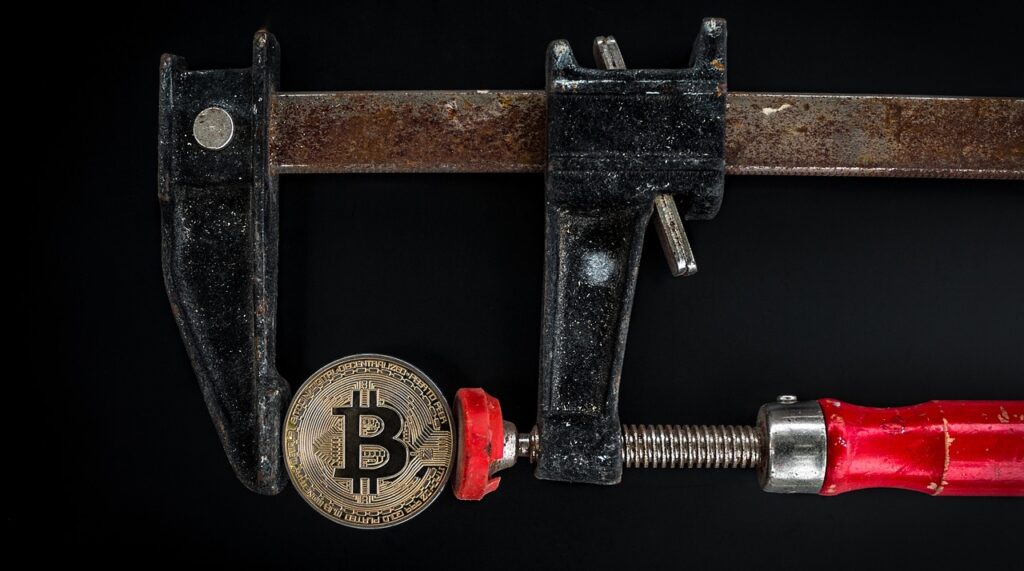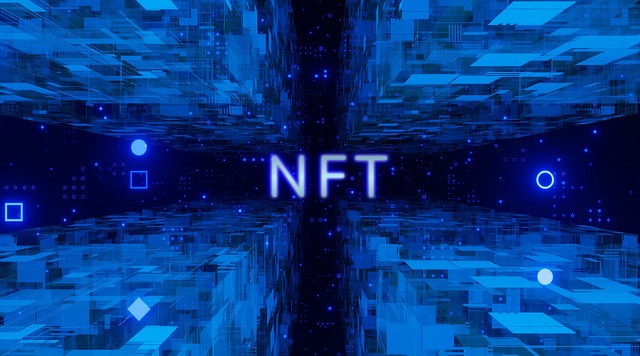Balancing Act: Decentralized Finance Pros and Cons
Balancing Act: Decentralized Finance Pros and Cons

What is Decentralized Finance?
Decentralized Finance, also known as DeFi, is a revolutionary concept that is transforming the traditional financial landscape. It refers to a system where financial transactions, such as lending, borrowing, and investing, are facilitated without the need for intermediaries like banks or centralized institutions. Instead, DeFi operates on a decentralized network, powered by blockchain technology, which enables users to interact with financial services directly, securely, and transparently.
In DeFi, the use of smart contracts plays a vital role. These self-executing contracts are programmed with predefined conditions, enabling the automatic execution of transactions once these conditions are met. This eliminates the need for intermediaries and ensures trust and efficiency in financial interactions. Additionally, the open-source nature of DeFi allows for anyone to participate in the ecosystem, empowering individuals worldwide to access financial services previously unavailable to them. With the potential to democratize finance, DeFi has become a catalyst for financial inclusion, offering opportunities and benefits to individuals of all backgrounds.
Advantages of Decentralized Finance
With the rise of decentralized finance (DeFi), there are several advantages that have caught the attention of both individuals and financial institutions. Firstly, DeFi offers greater accessibility compared to traditional finance. Through decentralized platforms, anyone with an internet connection can participate in financial activities, regardless of their location or background. This inclusivity opens up opportunities for individuals who were previously excluded from the traditional financial system.
Additionally, decentralized finance removes the need for intermediaries, such as banks, resulting in lower transaction fees. Without the involvement of middlemen, individuals can conduct peer-to-peer transactions directly, reducing costs and increasing efficiency. Moreover, the elimination of intermediaries also enhances transparency and security. Since transactions on the blockchain are publicly accessible, users can easily verify and track their financial activities without relying on a centralized authority. This transparency reduces the risk of fraud and ensures a higher level of trust between participants.
Advantages of Decentralized Finance:
• Greater accessibility: DeFi allows anyone with an internet connection to participate in financial activities, regardless of their location or background.
• Inclusivity: It opens up opportunities for individuals who were previously excluded from the traditional financial system.
• Lower transaction fees: Removing intermediaries like banks results in reduced costs and increased efficiency in peer-to-peer transactions.
• Enhanced transparency and security: Transactions on the blockchain are publicly accessible, allowing users to easily verify and track their financial activities without relying on a centralized authority.
• Reduced risk of fraud: The transparency provided by decentralized finance reduces the likelihood of fraudulent activities, ensuring a higher level of trust between participants.
Challenges of Decentralized Finance
Decentralized finance, or DeFi, has emerged as an exciting and innovative field in the world of finance. However, it is not without its challenges. One of the main hurdles that DeFi faces is scalability. As the popularity of decentralized applications (dApps) grows, the blockchain networks on which they operate can become congested, resulting in slower transaction speeds and higher fees. This can hinder the seamless and efficient functioning of DeFi platforms, making it less attractive for users who value speed and cost-effectiveness.
Another challenge that DeFi encounters is the issue of security. While blockchain technology is known for its immutability and transparency, it is not completely immune to vulnerabilities. Smart contracts, which are a cornerstone of DeFi applications, can have bugs or loopholes that malicious actors can exploit. The consequences of such security breaches can be significant, leading to financial losses for users and eroding trust in the entire DeFi ecosystem. Additionally, the lack of regulatory oversight in the DeFi space leaves users more exposed to potential scams and fraudulent activities. As DeFi continues to grow, addressing these security concerns will be crucial for its long-term sustainability and adoption.
Key Features of Decentralized Finance
Decentralized Finance, also known as DeFi, has gained significant attention in recent years due to its unique features that set it apart from traditional financial systems.

Another important feature of DeFi is its emphasis on transparency. Traditional financial systems are often criticized for their lack of transparency, making it difficult for individuals to fully understand the inner workings and potential risks involved. On the other hand, DeFi operates on a public blockchain, where all transactions are recorded and visible to anyone. This transparency not only fosters trust among users but also enables real-time auditing, reducing the risk of fraud and manipulation. Furthermore, the use of smart contracts in DeFi ensures that all transactions and agreements are executed automatically and without the need for intermediaries, eliminating the possibility of human error or manipulation.
Potential Risks in Decentralized Finance
Decentralized finance (DeFi) has gained significant attention in recent years due to its potential to disrupt traditional financial systems. While DeFi offers numerous benefits, it is important to acknowledge the potential risks associated with this emerging financial ecosystem.
One prominent risk in DeFi is smart contract vulnerabilities.

Another risk lies in market volatility and the lack of regulation. DeFi platforms often enable trading of highly volatile cryptocurrencies, which can lead to significant price fluctuations. Without proper regulation, these price swings can be exploited by bad actors who engage in market manipulation or fraudulent activities. Additionally, the absence of regulatory oversight raises concerns about investor protection and the potential for fraud, as there are minimal legal safeguards in place. As the DeFi space continues to grow, striking a balance between innovation and regulatory frameworks will be critical in mitigating these risks and ensuring long-term sustainability.
How Decentralized Finance Promotes Financial Inclusion
Decentralized finance (DeFi) has emerged as a promising solution to promoting financial inclusion. With its open and permissionless nature, DeFi platforms allow anyone with an internet connection to access financial services, regardless of their location or socioeconomic status. This is a stark contrast to traditional financial systems, which often exclude individuals who do not meet certain criteria or lack access to physical banking infrastructure.
One of the key ways that DeFi promotes financial inclusion is by eliminating the need for intermediaries. In traditional finance, intermediaries such as banks and payment processors play a vital role in facilitating transactions and providing financial services. However, these intermediaries can create barriers to entry and impose fees that make it difficult for underserved communities to participate. In contrast, DeFi platforms leverage blockchain technology and smart contracts to enable peer-to-peer transactions, cutting out the middlemen and reducing costs.

The Role of Smart Contracts in Decentralized Finance
Smart contracts play a crucial role in decentralized finance (DeFi) by automating and executing transactions without the need for intermediaries. These self-executing contracts are built on blockchain technology and are designed to be transparent, secure, and immutable. By removing the need for intermediaries, smart contracts enable direct peer-to-peer transactions, which can reduce costs and increase efficiency in financial transactions.
One of the key advantages of smart contracts in DeFi is their ability to facilitate complex transactions without relying on a central authority. These contracts can be programmed to automatically execute predefined actions, such as releasing funds once certain conditions are met. This eliminates the need for intermediaries, such as banks or lawyers, to oversee or enforce the terms of a transaction. Smart contracts also provide transparency as all transactions are recorded on the blockchain, making it easy to trace and verify the execution of the contract.
The Impact of Decentralized Finance on Traditional Financial Systems
Decentralized finance, often referred to as DeFi, has the potential to greatly impact traditional financial systems. One of the main ways it does so is by removing the need for intermediaries, such as banks, in financial transactions. This decentralized approach enables individuals to have full control over their assets and conduct peer-to-peer transactions without the need for a third party. With DeFi, individuals can lend, borrow, and trade assets directly with one another, eliminating the need for traditional financial institutions. This not only reduces the costs associated with intermediaries but also opens up new opportunities for individuals who may be excluded from traditional financial systems.
Another significant impact of DeFi on traditional financial systems is the increased accessibility it provides. In many parts of the world, traditional financial services can be inaccessible or expensive for individuals with limited resources. However, DeFi platforms operate on blockchain technology, which is borderless and accessible to anyone with an internet connection. This means that individuals who were previously excluded from financial services can now participate in activities such as lending, investing, and accessing credit without the need for extensive paperwork or high fees. This democratization of finance has the potential to empower individuals and drive financial inclusion on a global scale.
Regulatory Concerns in Decentralized Finance
Regulatory concerns play a crucial role in the world of decentralized finance. As this ecosystem continues to evolve and expand, it is essential to address the potential risks and challenges that could arise. One of the main concerns is the lack of clear guidelines and regulatory frameworks governing decentralized finance. Without proper regulations, it becomes difficult to protect investors’ interests and ensure market stability.
Additionally, the anonymity provided by decentralized finance platforms raises concerns about illegal activities such as money laundering and terrorist financing. Since transactions in decentralized finance are executed directly between participants, it becomes challenging for authorities to trace and monitor these activities effectively. This lack of transparency could potentially hinder the adoption and growth of decentralized finance, as governments may hesitate to endorse a system that facilitates illicit financial operations. Finding the right balance between innovation and regulation is crucial for decentralized finance to thrive and gain wider acceptance in the traditional financial system.
The Future of Decentralized Finance
The future of decentralized finance holds immense possibilities and potential for disruption. As this innovative concept continues to gain momentum, it is expected to revolutionize traditional financial systems and reshape the way people interact with money. With decentralized finance, individuals can have complete control over their financial transactions, eliminating the need for intermediaries and providing greater transparency and security.
One of the key aspects of the future of decentralized finance lies in the development of new and advanced technologies. Blockchain technology, for instance, acts as the backbone of decentralized finance by enabling secure and transparent financial transactions. As this technology continues to evolve, we can expect to see more sophisticated applications that will further enhance the efficiency and accessibility of decentralized finance. The future also holds the promise of increased interoperability between different decentralized finance platforms, allowing for seamless integration and better user experience. With ongoing advancements and constant innovation, the future of decentralized finance appears bright and holds the potential to bring about significant changes to the financial landscape.
What is Decentralized Finance?
Decentralized Finance, also known as DeFi, refers to a financial system that operates on blockchain technology without the need for intermediaries like banks or traditional financial institutions.
What are the advantages of Decentralized Finance?
Decentralized Finance offers greater accessibility, transparency, and financial control for individuals. It also enables faster and cheaper transactions, eliminates the need for third-party trust, and provides opportunities for earning passive income through various DeFi protocols.
What are the challenges of Decentralized Finance?
Some challenges of Decentralized Finance include scalability issues, potential security vulnerabilities, and the complexity of smart contract programming. Additionally, regulatory uncertainties and the risk of fraudulent projects are also concerns.
What are the key features of Decentralized Finance?
Key features of Decentralized Finance include decentralized applications (dApps), smart contracts, automated market makers (AMMs), decentralized exchanges (DEXs), lending and borrowing platforms, and yield farming.
What are the potential risks in Decentralized Finance?
Potential risks in Decentralized Finance include smart contract vulnerabilities, hacking attacks, market volatility, liquidity risks, and the possibility of scams or rug pulls in the decentralized ecosystem.
How does Decentralized Finance promote financial inclusion?
Decentralized Finance promotes financial inclusion by allowing anyone with an internet connection to access financial services and participate in the global economy. It removes barriers such as geographical limitations, high transaction fees, and the need for a traditional bank account.
What is the role of smart contracts in Decentralized Finance?
Smart contracts are self-executing agreements written in code that automatically execute predefined conditions and actions when certain criteria are met. In Decentralized Finance, smart contracts facilitate secure and transparent transactions, eliminate intermediaries, and enable complex financial operations.
How does Decentralized Finance impact traditional financial systems?
Decentralized Finance disrupts traditional financial systems by providing alternatives to traditional banking, lending, and investment services. It challenges the centralized control of financial institutions and offers individuals more control over their funds and financial decisions.
What are the regulatory concerns in Decentralized Finance?
Regulatory concerns in Decentralized Finance arise due to the decentralized and borderless nature of the technology. Regulators are concerned about money laundering, fraud, investor protection, and the potential systemic risks associated with decentralized systems.
What is the future of Decentralized Finance?
The future of Decentralized Finance looks promising as more people recognize its potential and developers continue to innovate. It is expected to revolutionize various sectors beyond finance, such as supply chain management, governance systems, and even social interactions, while also facing regulatory challenges and evolving to address scalability issues.
Todays Featured Product:
Buy, exchange and grow your crypto securely with a Ledger hardware wallet, combined with the Ledger Live app. It’s never been easier to keep your crypto safe and accessible. Buy direct from Ledger.com and get todays Special Offers Here.




